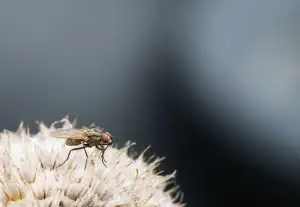Skittles Banned: The Sweet Treat That's Now Off-Limits in Your Home

Skittles, the colorful and beloved candy that has been a staple in households for decades, is now at the center of a heated controversy. Recent developments have led to a ban on Skittles in many homes, leaving both children and adults disappointed. This once cherished treat has come under scrutiny due to concerns over its ingredients and potential health risks. As parents and consumers, it is essential to understand the reasons behind this ban and explore healthier alternatives that can still satisfy our sweet tooth.
Understanding the Reasons Behind the Ban
The decision to ban Skittles has sparked a heated debate among consumers and health experts alike. The primary reason behind this controversial move is the high sugar content found in Skittles. A single serving of Skittles contains a staggering amount of sugar, far exceeding the recommended daily intake for both children and adults.
Excessive consumption of sugary treats like Skittles has been linked to numerous health issues, including obesity, diabetes, and tooth decay. The ban aims to protect individuals, especially children, from these potential risks associated with consuming large amounts of sugar.
Furthermore, Skittles also contain artificial colors and flavors that have raised concerns among health professionals. These additives have been linked to hyperactivity in children and may have adverse effects on overall health.
By implementing the ban on Skittles, authorities hope to promote healthier eating habits and reduce the prevalence of diet-related diseases. However, it is important for consumers to understand the reasons behind this ban and make informed choices about their food consumption.
Exploring the Potential Health Risks Associated with Skittles
While Skittles may be a beloved treat for many, it's important to understand the potential health risks that come along with consuming these colorful candies. One of the main concerns is their high sugar content. A single serving of Skittles contains a staggering amount of sugar, which can lead to weight gain, tooth decay, and an increased risk of developing conditions like diabetes and heart disease.
Additionally, Skittles are packed with artificial flavors and colors. These additives have been linked to various health issues including allergies, hyperactivity in children, and even certain types of cancers. The bright hues that make Skittles so visually appealing are often achieved through the use of chemical dyes that have been associated with adverse effects on human health.
Furthermore, Skittles lack any significant nutritional value. They provide empty calories without offering any essential vitamins or minerals. This can contribute to an imbalanced diet and hinder proper growth and development in children.
It's crucial to recognize that moderation is key when it comes to indulging in treats like Skittles. However, given the potential health risks associated with their consumption, it may be wise to consider healthier alternatives that satisfy your sweet tooth without compromising your well-being.
Examining the Impact of Skittles on Children's Health
Skittles, with their vibrant colors and sugary taste, have long been a favorite treat among children. However, recent studies have raised concerns about the impact of Skittles on children's health. The high sugar content in Skittles can contribute to weight gain and increase the risk of developing obesity-related diseases such as diabetes and heart disease. Additionally, the artificial additives and preservatives found in Skittles may have negative effects on children's behavior and cognitive function. It is crucial for parents to be aware of these potential health risks and make informed choices when it comes to their children's snacks.
The Role of Food Regulations in the Skittles Ban
The Skittles ban is not simply a result of personal preferences or parental concerns. It is also influenced by food regulations that aim to protect consumers from potential harm. Food regulatory bodies have strict guidelines in place to ensure the safety and quality of products. In the case of Skittles, these regulations have identified certain ingredients and additives that may pose health risks. By enforcing the ban, authorities are sending a clear message that they prioritize the well-being of consumers and are committed to upholding food safety standards.
Alternatives to Skittles: Healthier and Equally Delicious Options
When it comes to satisfying your sweet tooth, there are plenty of alternatives to Skittles that are not only healthier but equally delicious. Instead of reaching for a bag of sugary candies, consider indulging in some fresh fruit. Fruits like strawberries, blueberries, and grapes offer natural sweetness along with essential vitamins and minerals. Another option is dark chocolate, which contains antioxidants and is lower in sugar compared to milk chocolate. For a crunchy treat, try roasted nuts or seeds, which provide healthy fats and protein. And if you're craving something chewy, opt for dried fruits like raisins or apricots. By choosing these alternatives, you can still enjoy a tasty snack while nourishing your body at the same time.
In conclusion, the ban on Skittles has sparked a debate about the impact of sugary treats on our health. While it may be disappointing for some, it is essential to prioritize our well-being and make informed choices. By understanding the potential health risks associated with Skittles and exploring healthier alternatives, we can still enjoy delicious treats without compromising our health. Let's embrace this opportunity to explore new flavors and nourish our bodies with healthier options. Remember, moderation is key when it comes to indulging in sweet treats.
Published: 07. 02. 2024
Category: Home



